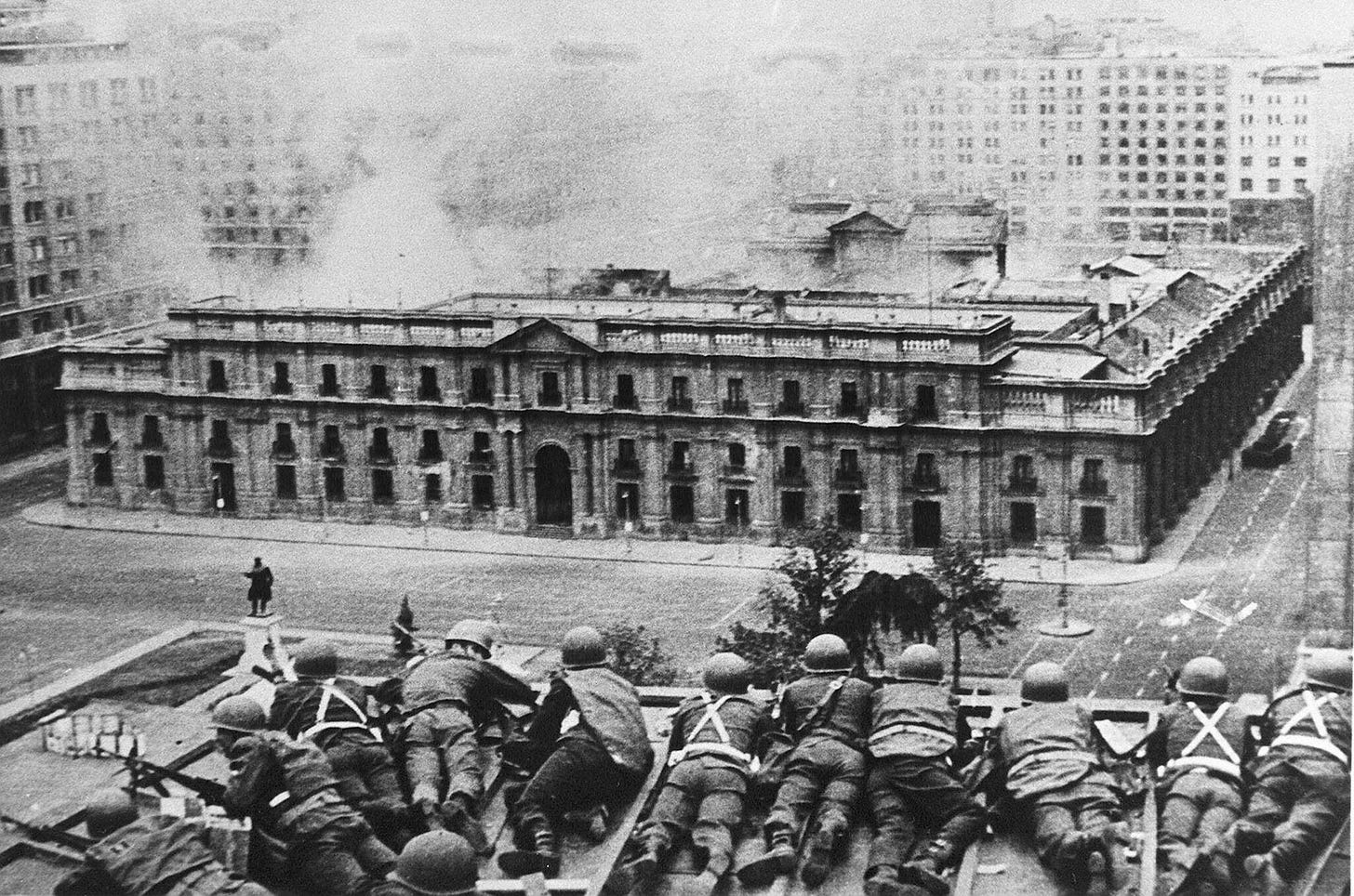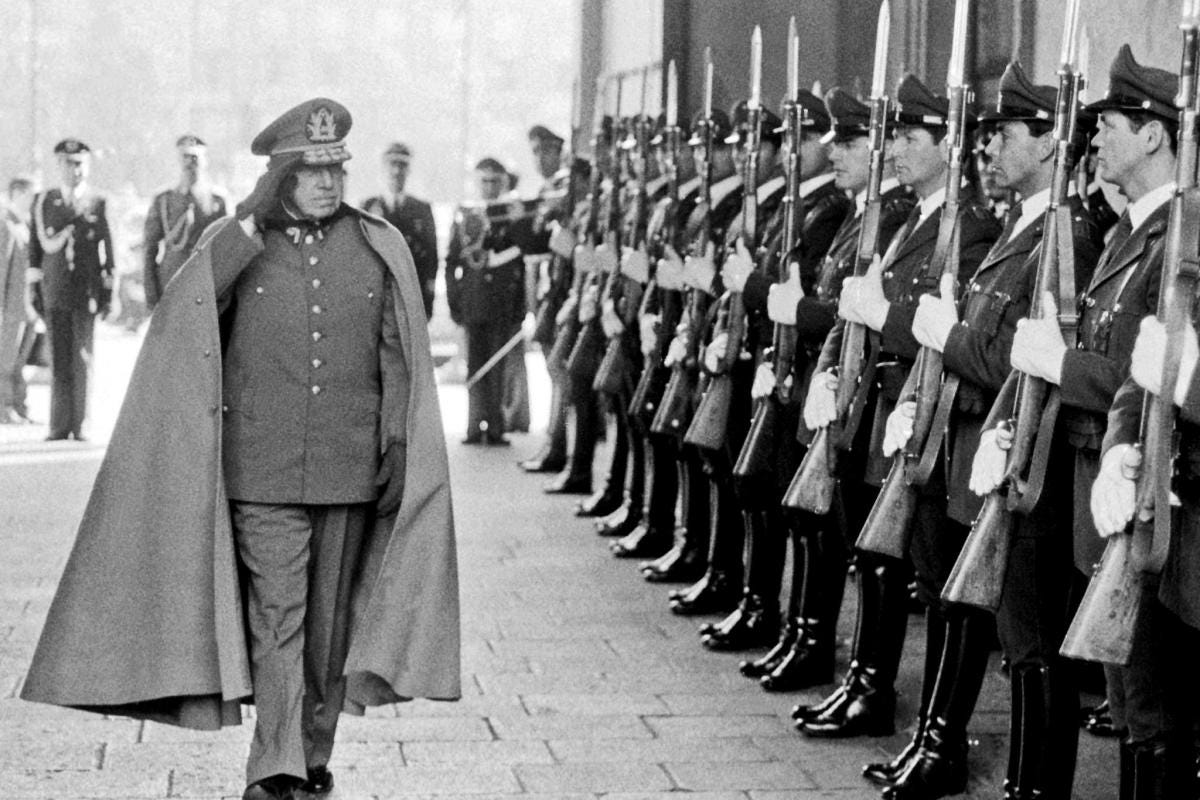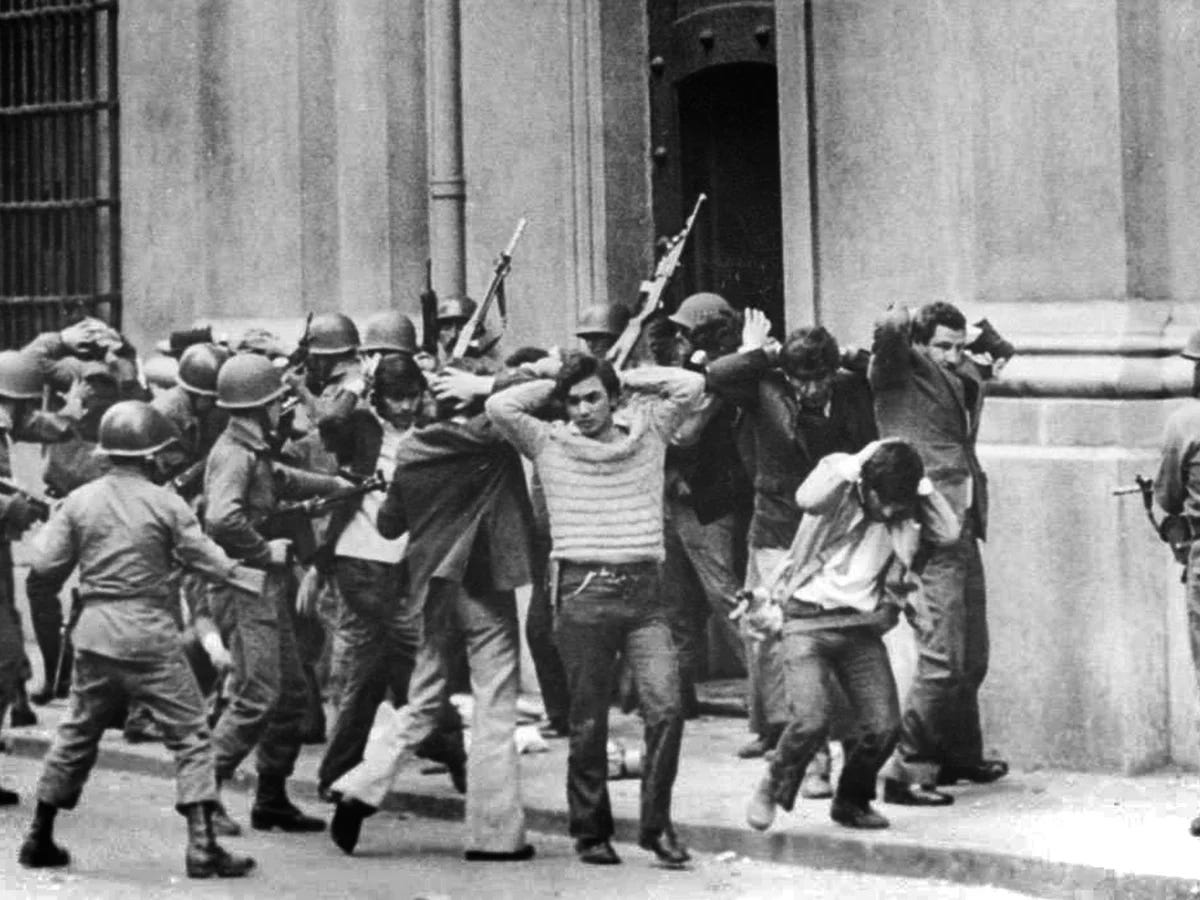On This Day 1973, Chile’s Democracy Was Gunned Down in Broad Daylight
How power, betrayal and silence killed a nation’s hope
Chile Was Betrayed by Its Own
September 11th, 1973, was not a day of protest or revolution. It was a day of uniforms, rifles and helicopters. The streets of Santiago were not filled with chants or flags. They were quiet, ghostly, broken only by gunfire and the thudding blades of gunships.
Inside La Moneda Palace, Salvador Allende made his final stand. Elected by the people, betrayed by his generals, and abandoned by the outside world, he chose to die with his country’s democracy rather than surrender to the men tearing it down.
Chile’s military coup was not the result of a failed state or mass revolt. It was planned, financed and executed with surgical precision. The world watched it happen. Some cheered. Others shrugged. What followed was nearly two decades of brutality masked as order.
Allende’s Slow Collision With the Military
In 1970, Allende became the first Marxist president in Latin America elected through democratic means. His election was not a landslide, but it was legitimate. It represented a break from Chile’s conservative past, and an attempt to redraw the map without resorting to dictatorship.
Allende’s vision was radical by design. He wanted to nationalise copper, reform education and improve workers’ rights. Washington saw a threat to its influence. Chile’s upper class saw a threat to its wealth. Both made their moves.
Money flowed into right-wing propaganda. The CIA offered support and bribes to tilt votes in Congress. When that failed, the pressure turned violent. In 1970, General René Schneider, who vowed to keep the military out of politics, was assassinated. Allende still assumed office, but the warning was clear.
He tried to govern through compromise, keeping Chile within constitutional lines. He believed that democracy could survive reform. But inflation exploded, strikes paralysed the country, and opposition parties cried constitutional crisis.
Then came the final, fatal mistake. After a series of scandals, Allende replaced the head of the army with General Augusto Pinochet, a man he believed was loyal to the constitution. He was wrong.
The Coup That Killed a Country
On the morning of September 11th, Chile’s media was blacked out. Government phone lines were cut. Armed forces surrounded Santiago. Soldiers were not fighting foreign invaders; they were storming their own capital.
Helicopters strafed La Moneda Palace. Troops opened fire. The air was thick with smoke and betrayal. Allende refused to flee. He refused to resign. He stayed with his ideals, his rifle and his courage.
By midday, the palace had fallen. Salvador Allende was dead, by his own hand. With him died the last defence of Chilean democracy.
General Pinochet, who had only recently taken command of the army, took full control of the government. What was meant to be a joint military leadership quickly became a dictatorship. The constitution was suspended, martial law declared, and mass arrests began.
Fear Became the New Normal
The repression was immediate and merciless. Thousands of Chileans were rounded up and imprisoned in stadiums. Many were tortured. Many disappeared. Some were executed without trial.
One of the most notorious death squads, known as the Caravan of Death, travelled across the country by helicopter. Their mission was not to gather intelligence, but to carry out killings. At least 75 people were executed directly by them, but the message was broader. No one was safe.
Pinochet ruled through fear. He created secret police, interrogation centres, and alliances with foreign intelligence to hunt down dissidents abroad. Around 3,000 Chileans were killed, and over 40,000 were tortured. Families were destroyed. The press was gagged. Truth became dangerous.
And yet, foreign powers like the United States, Britain and Australia recognised his government quickly. Pinochet was seen by some as a necessary shield against communism. For them, Allende’s death was a Cold War victory.
History’s Verdict Comes Late
By the late 1980s, the Cold War was winding down. International pressure began to mount. Pinochet legalised political parties and allowed a referendum in 1988, expecting to win. He lost.
Still, he tried to cling to power. He asked police to drop barriers in front of protesters, hoping to provoke violence and justify emergency powers. They refused. He tried to persuade the other military chiefs to stage another coup. They refused too.
Pinochet was forced to step down. But before he did, he made sure to protect himself. He stayed on as army chief, then secured a role as senator for life, hoping for immunity from prosecution.
Eventually, he was arrested in the UK and charged with genocide and terrorism, but he never stood trial. He died in 2006 from heart failure, a quiet end that so many of his victims were denied.
Why This Day Still Matters
September 11th, 1973 is not just a Chilean tragedy. It is a warning. Democracy does not always fall to mobs or foreign invasions. Sometimes it dies when people in power decide that order matters more than freedom, when militaries decide they know better than voters, and when foreign allies choose silence over justice.
Allende was not perfect. His policies were divisive. His economy struggled. But he believed in the idea that power should be earned, not seized. He chose death over surrender, not out of pride, but out of principle.
What Chile lost that day was more than a president. It lost trust in its institutions, in its army, in its place in the world.
What the rest of us can learn is simple. When politics gets hard, when debate gets loud, and when democracy feels broken, the solution is not silence or sabotage. It is more democracy, not less.
And if we fail to defend it, we risk becoming the quiet streets of Santiago on that cold Tuesday in 1973, waiting for the sound of boots.




